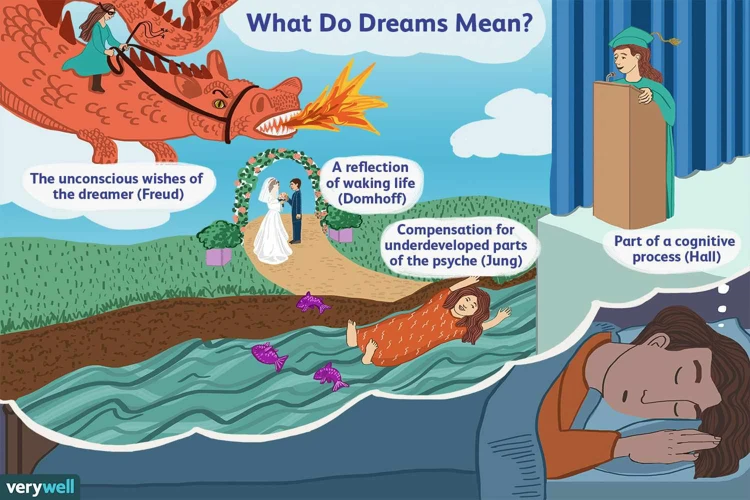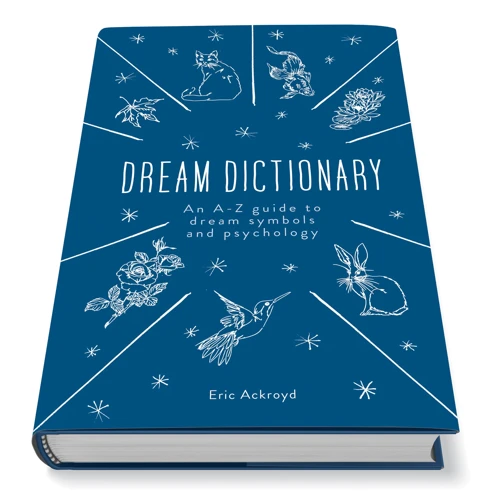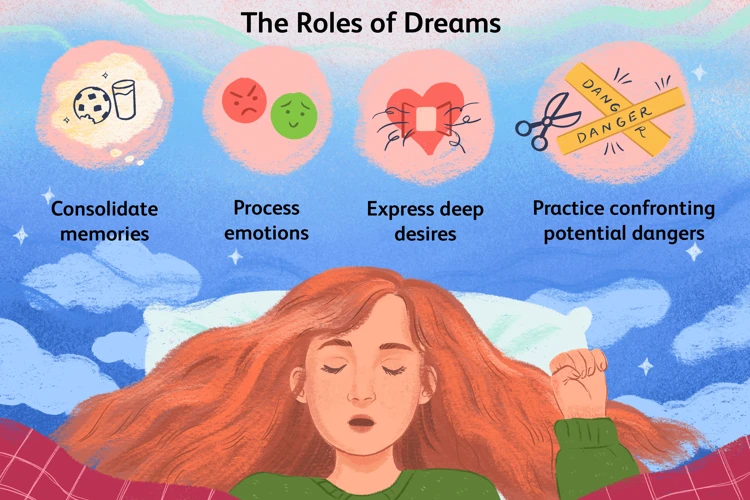Introduction to Dream Analysis

Dream analysis is the process of understanding the hidden meanings and messages behind our dreams. Throughout history, dreams have fascinated and perplexed humans, leading to various theories and practices devoted to interpreting their significance. Dream analysis offers a unique way to gain insight into our subconscious mind and uncover the symbolic language of our dreams.
Dreams can serve as windows into our unconscious thoughts, emotions, and desires. They can provide clues about unresolved issues, unexpressed emotions, and fears we may not be consciously aware of. By delving into the world of dream analysis, we can unlock the secrets of the mind and gain a better understanding of ourselves.
During sleep, our minds enter a different state of consciousness, enabling us to experience a variety of dream scenarios. Dreams can be vivid and fantastical, filled with unknown symbols and mysterious events. By exploring and analyzing these dreams, we can uncover hidden meanings and gain valuable insights that can help us navigate our waking lives.
Dream analysis can be a fascinating and enlightening process. Throughout this article, we will delve into the world of dream symbols, themes, and various methods of dream analysis. We will also discuss the benefits of consulting a dream analyst and offer tips on keeping a dream journal to enhance the exploration of our dreams. So, let’s begin this journey into the fascinating realm of dream analysis and unlock the hidden meanings behind our dreams.
Understanding Dream Symbols

Dream symbols are the key to unlocking the hidden meanings behind our dreams. These symbols are like the language of the unconscious mind, conveying important messages and insights that can help us better understand ourselves. Each symbol in a dream has its own unique significance, and it is important to approach them with an open and curious mind. While some symbols may have universal meanings, such as water representing emotions or flying representing freedom, other symbols may be more personal and specific to the individual. For example, dreaming of a deceased loved one can hold deep emotional significance, and consulting a dream analyst can help uncover the hidden messages behind such dreams. By paying attention to these symbols and delving into their meanings, we can gain a deeper understanding of ourselves and our inner world. So, let’s dive into the fascinating realm of dream symbols and unravel the mysteries that lie within our dreams.
Common Dream Symbols and their Meanings
Common dream symbols can often appear in our dreams, carrying specific meanings that can provide valuable insights into our subconscious. Understanding these symbols can assist us in deciphering the hidden messages behind our dreams. Here are a few examples of common dream symbols and their potential interpretations:
1. Water: Water symbolizes emotions and the subconscious mind. Clear, calm waters may represent tranquility and peace, while turbulent or murky waters can signify emotional upheaval or uncertainty.
2. Flying: Flying is often associated with freedom, empowerment, and a sense of control. It can represent overcoming obstacles or gaining a fresh perspective on life.
3. Teeth: Teeth symbolize communication and self-expression. Healthy teeth may indicate effective communication skills, whereas broken or missing teeth could suggest difficulties in expressing oneself.
4. Death: Death in dreams rarely predicts actual physical death. Instead, it symbolizes the end of a certain phase or transformation. It may represent the completion of a chapter in life or overcoming a significant change.
5. Falling: Falling in dreams can indicate a lack of control, insecurities, or a fear of failure. It may be a sign that you need to regain control in a certain area of your life.
Remember, individual interpretations may vary, and it’s important to consider personal experiences and emotions when analyzing dream symbols. Consulting with a dream analyst can provide additional guidance in understanding the unique meanings behind the symbols in your dreams.
Interpreting Personal Dream Symbols
Interpreting personal dream symbols is a crucial aspect of understanding the hidden meanings behind our dreams. While some dream symbols may have common interpretations, it is important to remember that each individual is unique, and their personal experiences and associations shape the meanings behind their dream symbols. One effective way to interpret personal dream symbols is to keep a dream journal. By recording dreams regularly and reflecting on the emotions, people, places, and objects that appear in the dreams, patterns and recurring symbols may emerge. These personal symbols may be deeply rooted in the dreamer’s life experiences, relationships, fears, or desires. For example, dreaming of a deceased friend may hold a different meaning for each individual. It may symbolize unresolved emotions, the need for closure, or a longing for that person’s presence. Understanding these personal dream symbols requires self-reflection, introspection, and a willingness to delve into the depths of one’s own psyche. By deciphering the personal symbols in our dreams, we can gain valuable insights into our inner selves and navigate our waking lives with a greater sense of self-awareness.
Exploring Dream Themes

Dream themes provide us with a deeper understanding of the recurring patterns and narratives that appear in our dreams. These themes can offer valuable insights into our subconscious mind and the emotions, fears, and desires that reside within us. One common dream theme is nightmares and anxiety, where we may experience feelings of fear, helplessness, or intense stress. These dreams often reflect our daily anxieties and unresolved issues. Another fascinating theme is recurring dreams, which are dreams that repeat themselves over time. These dreams may indicate unresolved conflicts or unresolved emotions that we need to address. Additionally, lucid dreams are a captivating theme where the dreamer becomes aware that they are dreaming and can actively engage with the dream environment. These dreams provide a sense of empowerment and the opportunity to explore the depths of our subconscious. By exploring these dream themes and analyzing their underlying meanings, we can gain valuable insights into our inner selves and work towards personal growth and self-discovery.
Nightmares and Anxiety
Nightmares and anxiety dreams are common experiences that many people have. These types of dreams can be particularly distressing, often leaving individuals feeling unsettled and uneasy upon waking. Nightmares are vivid and intense dreams that are usually associated with fear, danger, or distressing situations. They can be a reflection of our deepest fears and anxieties. Anxiety dreams, on the other hand, are characterized by feelings of unease, worry, and stress. They may not always be as terrifying as nightmares, but they still evoke a sense of discomfort. Both nightmares and anxiety dreams can provide valuable insights into our subconscious fears and worries, offering an opportunity for self-reflection and personal growth. Exploring the symbolism and themes within these dreams can help individuals uncover underlying sources of stress and address them in their waking lives. So, if you find yourself experiencing frequent nightmares or anxiety dreams, consider consulting a dream analyst who can assist you in deciphering their hidden meanings and provide guidance on how to alleviate the anxieties they may represent.
Recurring Dreams
Recurring dreams are a phenomenon that many people experience throughout their lives. These are dreams that occur repeatedly over a period of time, often with similar themes, settings, or characters. They can range from simple scenarios to complex narratives, but the common thread is their recurrence. These dreams can hold significant meaning and offer valuable insights into our subconscious mind. Understanding the symbolism and patterns within recurring dreams is essential to uncovering their hidden messages. By keeping a dream journal and documenting the recurring dreams, we can identify patterns, emotions, and unresolved issues that may be influencing our waking lives. Exploring the themes and symbols in these dreams can lead to personal growth, self-awareness, and a deeper understanding of ourselves. So, if you find yourself experiencing recurring dreams, don’t dismiss them as mere coincidences. Instead, embrace them as valuable opportunities for self-discovery and introspection.
Lucid Dreams
Lucid dreams are a fascinating phenomenon that occurs when we become aware that we are dreaming while still in the dream. In these dreams, the dreamer gains a sense of control and consciousness, allowing them to actively participate and shape the dream experience. This heightened state of awareness opens up a world of possibilities, where the dreamer can manipulate the dream environment, interact with dream characters, and explore their own subconscious in a profound way. Lucid dreams can be a source of creativity, self-discovery, and even problem-solving. It is an extraordinary experience that can be honed and practiced through techniques such as reality checks, dream journals, and meditation. So, it’s time to delve into the realm of lucid dreaming and venture into the extraordinary landscapes of our own subconscious minds.
Methods of Dream Analysis

Dream analysis encompasses various methods that have been developed over time to decipher the hidden meanings within our dreams. These methods provide frameworks and tools for understanding the symbols, themes, and messages that appear in our dreams. One popular method is Freudian analysis, which focuses on the interpretation of dreams through the lens of psychoanalysis, emphasizing the role of the unconscious mind and repressed desires. Another method is Jungian analysis, which explores dreams as a reflection of the collective unconscious and archetypal symbols. Modern psychological approaches to dream analysis incorporate elements from both Freudian and Jungian perspectives, as well as other theories and techniques. These approaches consider the context, emotions, and personal experiences of the dreamer to gain a deeper understanding of the dream’s meanings. By utilizing these various methods of dream analysis, we can unlock the rich symbolism and hidden wisdom contained within our dreams.
Freudian Analysis
Freudian analysis, named after the renowned psychoanalyst Sigmund Freud, is a method of dream analysis that focuses on the unconscious mind and its influence on dreams. According to Freud, dreams are the manifestation of our unconscious desires and conflicts. Freud believed that dreams were symbolic representations of repressed thoughts and wishes, often related to early childhood experiences. The analysis of dreams using a Freudian approach involves exploring the symbolism and underlying meaning behind the dream content. Symbols such as water, snakes, or teeth can have hidden sexual or aggressive connotations in Freudian analysis. Through the interpretation of dream symbols and their connection to unconscious desires, Freudian analysis aims to uncover the deeper psychological meanings behind our dreams and offer insight into our innermost conflicts and desires. For those interested in delving into the world of Freudian dream analysis, consulting a dream analyst trained in this approach can provide valuable insights into the hidden aspects
Subscribe to Our Newsletter
Sign up to receive the latest news and updates.
Jungian Analysis
Jungian analysis, also known as analytical psychology, is a method of dream analysis developed by Swiss psychiatrist Carl Jung. This approach focuses on exploring the collective unconscious, which refers to the shared psychological patterns and archetypes that exist within all individuals. Jung believed that dreams contain important symbols and themes that reflect deeper aspects of our psyche and can provide insight into our personal growth and individuation process. In Jungian analysis, dream symbols are seen as representations of archetypal energies and universal themes that are common to all human beings. These symbols connect us to the collective unconscious and can help us access the wisdom of our ancestors and the collective human experience. Through the process of Jungian analysis, individuals can gain a deeper understanding of themselves and their place within the greater tapestry of humanity. So, if you find yourself intrigued by the archetypal mysteries of your dreams, exploring Jungian analysis may offer valuable insights on your personal journey of self-discovery and transformation.
Modern Psychological Approaches
Modern psychological approaches to dream analysis have evolved over time, incorporating various theories and methodologies. These approaches focus on understanding dreams within the context of an individual’s psychological and emotional state. One prevalent approach is Cognitive-Behavioral Therapy (CBT), which explores the connection between thoughts, feelings, and behaviors. CBT helps individuals identify and challenge negative or distorted thoughts related to their dreams, allowing for a deeper understanding of their underlying emotions and beliefs. Another approach is Gestalt therapy, which emphasizes the importance of exploring dreams as a whole and considering the individual’s experiences and emotions in the dream. This approach encourages individuals to engage with the various elements of their dreams and gain insight into the unresolved aspects of their lives. Additionally, psychoanalytic therapy, pioneered by Sigmund Freud, continues to influence modern dream analysis by exploring the unconscious desires and motives that are expressed in dreams. These modern psychological approaches offer valuable tools and perspectives for interpreting and understanding the rich tapestry of our dreams.
Benefits of Consulting a Dream Analyst

Consulting a dream analyst can provide numerous benefits for those seeking a deeper understanding of their dreams.
1. Interpretation: Dream analysts are trained professionals who can help decipher the hidden meanings and symbols in your dreams, offering insights that may not be immediately apparent to you. They can provide guidance and interpretations that can shed light on unresolved issues, emotions, and conflicts.
2. Self-reflection: Through the guidance of a dream analyst, you can engage in a process of self-reflection and introspection. By exploring your dreams with an expert, you can gain a better understanding of your thoughts, feelings, and innermost desires.
3. Personal growth: Dream analysis can be a powerful tool for personal growth and self-discovery. It can help you identify patterns, fears, and limiting beliefs that may be holding you back. By addressing these issues, you can work towards personal growth and transformation.
4. Emotional healing: Dreams often reflect our emotions and can be a way for the subconscious mind to process and heal. By working with a dream analyst, you can uncover the emotional significance of your dreams and gain insights that can contribute to emotional healing and well-being.
5. Problem-solving: Dreams can sometimes provide solutions or alternative perspectives to real-life problems. Dream analysts can help you navigate through the symbolism and messages in your dreams, offering fresh perspectives and ideas to address challenges you may be facing.
By consulting a dream analyst, you can tap into the deep wisdom of your dreams and use them as a tool for self-discovery, personal growth, and emotional healing. Whether you are curious about a specific dream or looking to gain a deeper understanding of your dream patterns, a dream analyst can provide valuable insights and guidance on your journey of self-exploration. So, consider reaching out to a dream analyst and unlock the hidden meanings behind your dreams.
Tips for Keeping a Dream Journal
Keeping a dream journal is an essential tool for unlocking the hidden meanings behind our dreams. By recording our dreams upon waking, we create a valuable resource for analysis and exploration. Here are some tips for maintaining an effective dream journal:
1. Keep the journal within reach: Place your dream journal and a pen or pencil near your bed. This makes it easier to jot down your dreams as soon as you wake up, before they fade from memory.
2. Write immediately: As soon as you wake up, take a few minutes to write down any details you can remember from your dream. Don’t worry about structure or grammar, just focus on capturing the essence of the dream.
3. Include emotions and sensations: Pay attention to the emotions and sensations you experienced during the dream. Were you scared, joyful, or confused? Did you feel any physical sensations like pain or warmth? Including these details can provide additional insight.
4. Sketch or use keywords: If you’re inclined, you can also make simple sketches or use keywords to capture the essence of the dream. These visual cues can be helpful when reviewing your journal later.
5. Date your entries: Make sure to date each entry in your dream journal. This can be useful for identifying patterns or recurring themes over time.
By following these tips and consistently recording your dreams, you create a valuable resource for dream analysis and self-reflection. So, grab your journal, keep it by your bedside, and embark on this fascinating journey of exploring the hidden meanings within your dreams.
Conclusion
In conclusion, dream analysis is a powerful tool for unlocking the hidden meanings behind our dreams and gaining insight into our subconscious mind. By understanding dream symbols, exploring dream themes, and utilizing various methods of dream analysis, we can tap into a wealth of knowledge that can enhance our self-awareness and personal growth. Consulting a dream analyst can provide valuable guidance and interpretation for our dreams, especially when dealing with personal or complex symbols like dreaming of a dead friend. Keeping a dream journal can also be a useful practice to track patterns and recurring themes in our dreams. Ultimately, embracing the world of dream analysis allows us to uncover the messages and wisdom that our dreams hold, leading to a deeper understanding of ourselves and our inner world. So, embrace the power of dream analysis and let your dreams guide you towards self-discovery and personal transformation.
Frequently Asked Questions
What is the purpose of dream analysis?
The purpose of dream analysis is to uncover the hidden meanings and messages behind our dreams. It allows us to gain insights into our subconscious mind, unresolved issues, and unexpressed emotions.
Do all dreams have specific meanings?
While all dreams hold significance, not all of them have specific and universal meanings. Some dreams may be influenced by our day-to-day experiences, while others may be a result of random brain activity during sleep.
Are dream symbols the same for everyone?
No, dream symbols can vary greatly from person to person. While some symbols may have universal meanings, others may be influenced by personal experiences, cultural background, and individual beliefs.
Can dreams predict the future?
Dreams are not generally believed to predict the future literally. However, they can provide valuable insights into our current state of mind, emotions, and desires, which may indirectly influence our future decisions and actions.
What is the significance of recurring dreams?
Recurring dreams often symbolize unresolved issues or recurring emotions in our lives. They provide an opportunity for introspection and self-reflection, urging us to address and resolve these underlying concerns.
Is it necessary to consult a dream analyst to interpret dreams?
No, it is not necessary to consult a dream analyst to interpret dreams. However, a dream analyst can provide valuable guidance and expertise in understanding dream symbols and their meanings, offering deeper insights into our subconscious mind.
Can nightmares be beneficial for personal growth?
Yes, nightmares can be beneficial for personal growth. They often represent suppressed fears and anxieties, giving us an opportunity to confront and overcome these internal struggles and ultimately promote psychological healing.
Can lucid dreaming be learned and practiced?
Yes, lucid dreaming can be learned and practiced. It involves becoming aware that you are dreaming while still in the dream state, which allows you to consciously control and influence the events within the dream.
What is the difference between Freudian and Jungian dream analysis?
Freudian dream analysis focuses on the interpretation of unconscious desires and repressed thoughts, whereas Jungian dream analysis explores deeper archetypal symbols and universal themes that transcend personal experiences.
How can keeping a dream journal enhance dream analysis?
Keeping a dream journal can enhance dream analysis by providing a written record of dreams over time. It helps in identifying patterns, recurring symbols, and connecting emotions and events, allowing for a deeper understanding of dream meanings.










